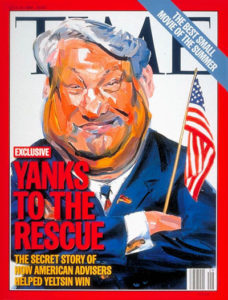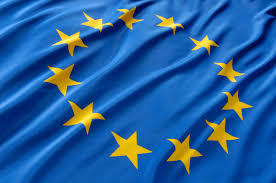One of the major changes in my life this last year has been that I’m reading a lot of books.
When I was young, I read a lot. For much of my childhood and most of my teen years I was reading about two books a day. During holidays I often read three a day or even four. Even into my twenties and early thirties, I maintained a book a day or so. I was one of those people who always carried a pocket book. Heck, I’d walk down the sidewalk, reading, the analog version of people staring at their smartphones.
Then along came the internet. A fair bit of my attention went to forums, but that didn’t slow down my book reading too much. Until I became a blogger, and somehow the internet ate my life.
A lot of that was good, especially from 03-08, but one casualty was book reading. I went down to one or two a week. I was intensely involved in political and economic issues, and paradoxically that made me hate reading books about economics and politics. I had trained myself, as a writer, to look for what people were (to my mind) wrong about, get angry about it (because it had real world consequences that were ugly), and then use that anger to write a post.
This made reading full books by people I disagreed with (almost all mainstream economists and political theorists of the time) really unpleasant.
This conditioning took a lot of time to overcome. But about a year ago I started really reading again, and today I’m up to about a book and a half a day. Buying a Kindle (yeah, Amazon, I know, but my experience with Kobo sucked) made this easy, and in general e-books are cheaper.
So I’ve been reading and reading, and I confirmed what I’d known, but put aside, that internet reading is not a substitute for reading books.
The vast majority of internet reading is too short. Even longer form articles and essays, which are becoming a smaller and smaller proportion of the internet anyway, just don’t match up to a decent book.
You don’t get enough information or argument or description. Even a five thousand word essay, which almost no one publishes on the internet anymore, and no one reads, does not allow the proper development of either the argument or the supporting facts as well as a good book. (Granted a lot of books are overgrown magazine articles, but that’s why I qualified with “good.”)
One gets pieces, on the internet, facts out of context, or arguments without all the facts. When learning about a new subject, one rarely gets all the context one needs: No essay is comprehensive enough.
Just recently, I spent a lot of time reading about the Chinese economy, and Chinese trade. I’ve kept a general eye on China for years, but I still didn’t know basic facts, like, for example, that China has the most decentralized government spending of any federal government in the world. (This is a fundamental and important fact, and explains much of why China succeeded.)
There is an idea, prevalent today, that one doesn’t really need to know things, because one can easily look them up.
This is not true if you want to understand anything, however. Your mind cannot work without facts and theories you don’t know. The more you know, the more you know you don’t know, and what you know you don’t know, you can then go study. If there’s important information you don’t know you don’t know, you can’t even take your ignorance into account.
Information outside your head can’t be used to improve your world and understanding, to make new connections, to understand more.
And disconnected facts and theories, not embedded within a fuller network of facts and theories; decontextualized, can be deeply misleading. They may make sense, but if you knew more you’d know they aren’t correct or don’t mean what you think they do. Equally you may think a theory or set of facts are bullshit, where if you knew more you’d understand whatever truth, or usefulness, they carry.
We thought the internet would be a huge boon, and in some ways it has been. But as with the research that shows that the more one uses social media the more unhappy and anxious one is, the fact of having so much information at our fingertips, while lovely, has also led to too much of it floating, almost context free, un-embedded in the networks of theory and meaning and additional facts necessary to make sense of it.
So, in general, while I think the internet has a lot to offer, I have to say that for those who want to understand the world, it should be used as little more than a reference library and news ticker; social media should mostly be avoided, with a careful calculus of whether the benefits outweigh the disadvantages, and one should spend most of one’s reading time with books, not online writing. (Er, of course, my blog is an exception. *cough*)
Books: Still better for actual understanding. And better for your happiness and your ability to concentrate as well.
The results of the work I do, like this article, are free, but food isn’t, so if you value my work, please DONATE or SUBSCRIBE.

 Let us take as a given that Russia interfered in the last US election (though many of the accusations are unconvincing, some appear to be be true).
Let us take as a given that Russia interfered in the last US election (though many of the accusations are unconvincing, some appear to be be true). So, the expected has happened. Prime Minister May’s minority government has been unable to deliver a Brexit which keeps her MPs happy. Two senior ministers have resigned, and should there be a confidence vote over Brexit, it is likely that May will not muster a majority and her government will fall.
So, the expected has happened. Prime Minister May’s minority government has been unable to deliver a Brexit which keeps her MPs happy. Two senior ministers have resigned, and should there be a confidence vote over Brexit, it is likely that May will not muster a majority and her government will fall. It’s July 4th, and I hope all my American readers are enjoying the holiday.
It’s July 4th, and I hope all my American readers are enjoying the holiday.